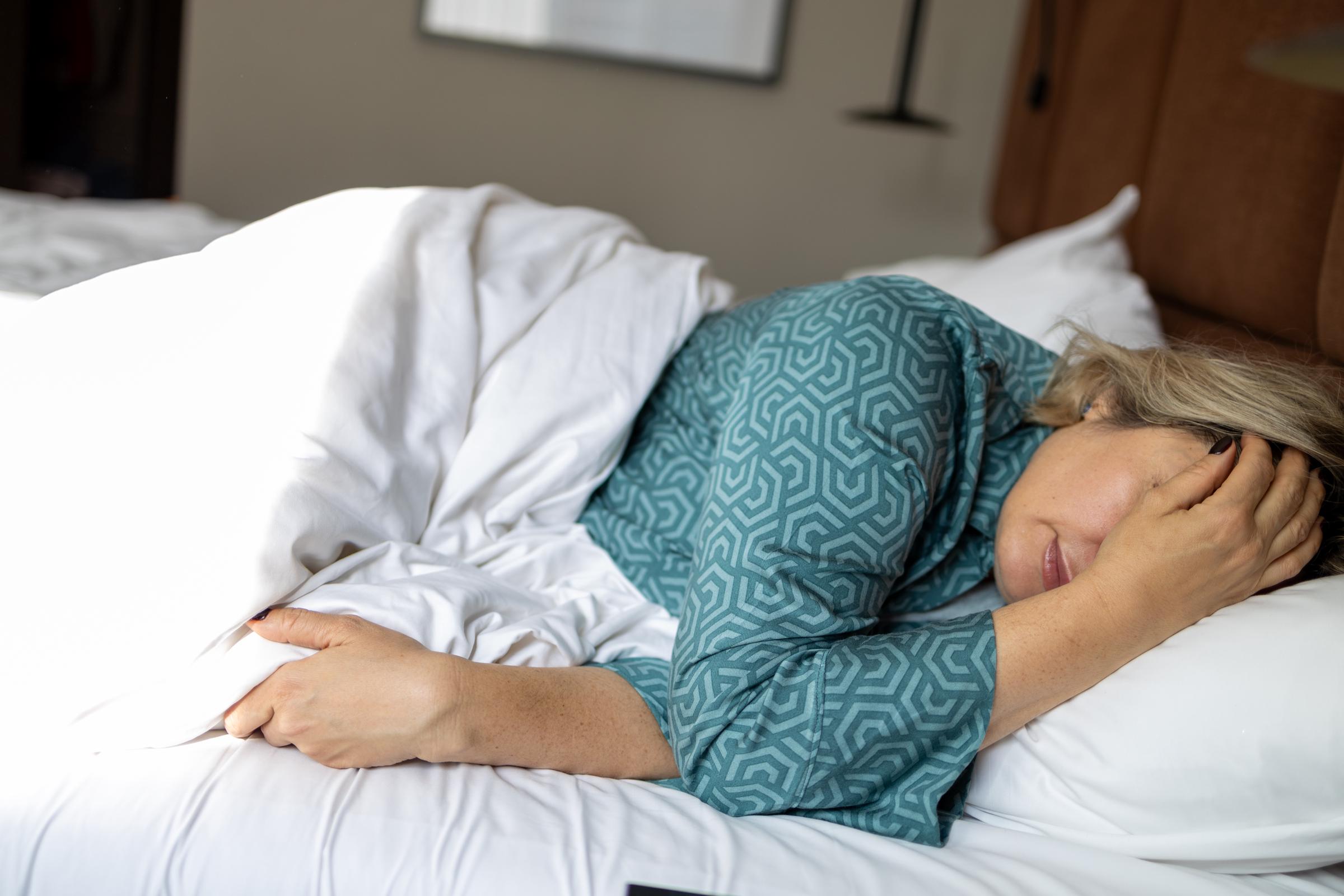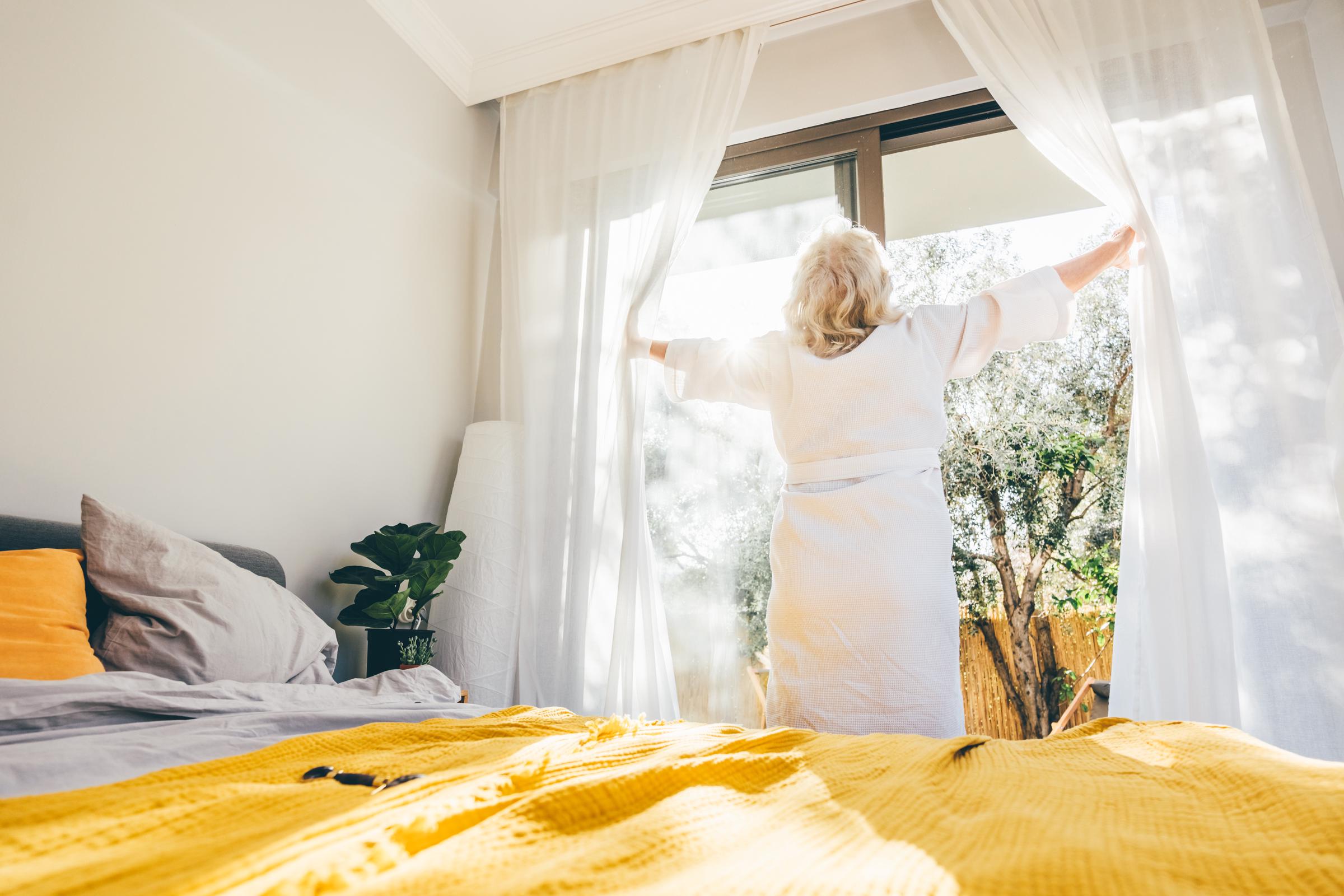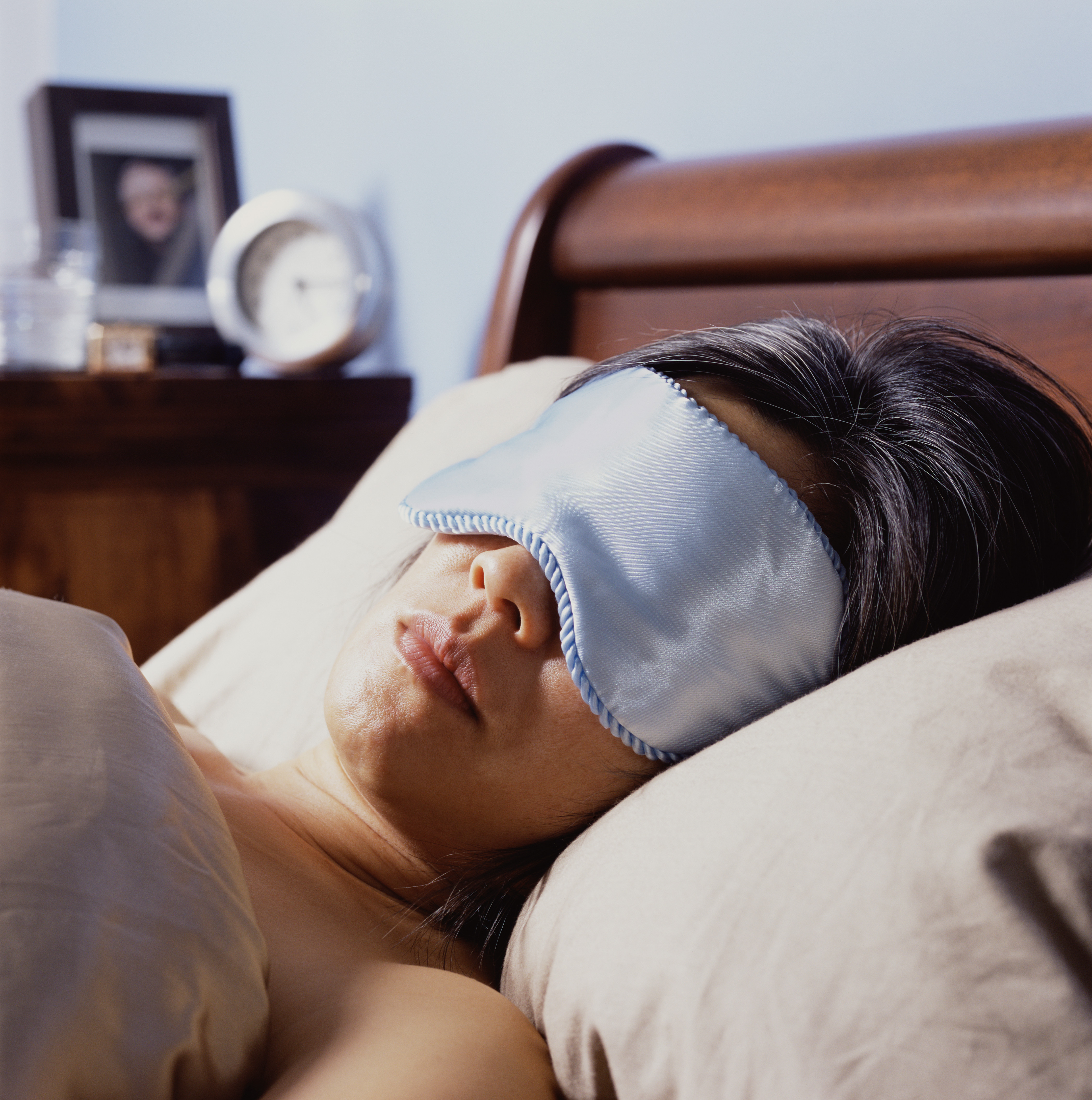
4 Tips for Establishing an Ideal Sleep Routine as an Older Adult
Prioritizing a good night's sleep becomes increasingly paramount as we grow older because our sleep patterns evolve over time. If you're struggling with this as an older adult, having a sleep ritual tailored specifically to you and your needs can help.
Sleep is a vital aspect of our health and longevity — even more so as we age. Older adults and seniors often struggle with getting a good night's sleep due to several factors, including changes in sleep patterns, lifestyle habits, and underlying conditions.

A woman sleeping in her bed | Source: Getty Images
According to the Centers for Disease Control and Prevention (CDC), around one in three American adults have reported not getting the recommended amount of rest or sleep (seven to nine hours) every day.
It's important to note that sleep is just as crucial to your overall health as eating well and exercising. Prolonged sleep deprivation affects your ability to focus on important tasks and even increases your risk of falls.
It's also been linked to stroke, obesity, depression, and heart as well as kidney disease. While you may not have full control over the factors affecting the quality of your rest, having a consistent sleep routine can help. Here are four tips to help you get started.

A woman opening the curtains in her room | Source: Getty Images
1. Keep a Steady Sleep Schedule
Going to bed and waking up at the same time each day — including weekends, aside from special occasions — is essential for regulating your body's internal clock. This consistency supports your body's natural sleep rhythms and promotes a healthy sleep pattern.
Additionally, sticking to a predictable sleep routine helps regulate various physiological processes, including hormone secretion and body temperature, which are vital for a restorative night's sleep.

A close up of a woman sleeping with an eye mask | Source: Getty Images
2. Watch What You Eat Before Bed
You want to avoid heavy meals right before bed. Indigestion and discomfort after having a large meal can make it difficult to fall asleep, so it's best to keep evening meals and snacks light.
You also want to steer clear of caffeine, nicotine, and alcohol too close to your bedtime. These stimulants often take hours to wear off and can interfere with your sleep. And while alcohol can make you sleepy at first, it can disrupt your rest later in the night.

A healthy dinner | Source: Getty Images
3. Have a Relaxing Bedtime Ritual
Engage in activities that help your mind and body wind down at the end of the day to prepare for bed. You might enjoy reading and listening to calming music, journaling and reflecting on your day, or taking a nice warm bath. Whatever helps you relax, make it a part of your bedtime routine.
Creating a restful environment tailored to your needs will also aid in getting restorative sleep. This can look like investing in a high-quality mattress, blackout curtains, a fan to keep your room cool, white noise machines, or weighted blankets — whatever works for you.

A woman journaling in her bedroom | Source: Getty Images
4. Stay Active and Limit Daytime Naps
Incorporating regular physical activity in your daily routine can help promote better sleep. This doesn't have to mean vigorous exercise — it can be as simple as taking a walk in your neighborhood, doing gentle yoga, or light strength training.
Try to schedule these activities earlier in the day, as exercising too close to bedtime can make it harder to fall asleep. Additionally, limit your daytime naps.
Sleeping for prolonged periods during the day can make it harder to sleep at night, as you might find yourself too alert to settle down. If you do take a nap, restrict it to earlier in the day for no more than one hour.

A woman taking a nap on her couch | Source: Getty Images
That wraps up our list of four tips to help you establish a healthy and consistent sleep schedule as an older adult. By making small, mindful changes to your routine, you can improve your sleep quality and overall well-being. Remember, restful nights lead to more energized and fulfilling days.
The information in this article is not intended or implied to be a substitute for professional medical advice, diagnosis or treatment. All content, including text, and images contained on AmoMama.com, or available through AmoMama.com is for general information purposes only. AmoMama.com does not take responsibility for any action taken as a result of reading this article. Before undertaking any course of treatment please consult with your healthcare provider.
